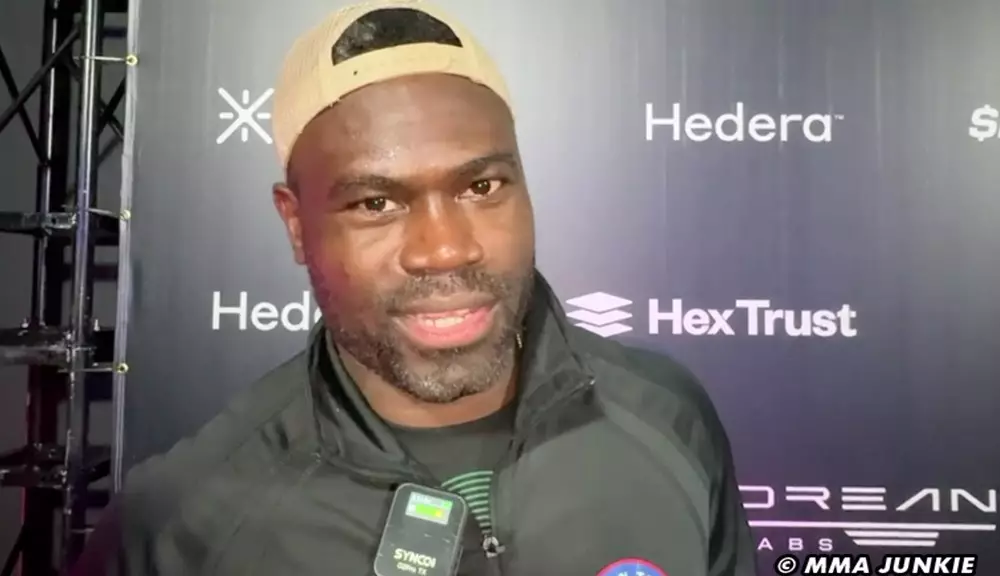Uriah Hall is a name synonymous with striking prowess in mixed martial arts (MMA), particularly due to his time in the Ultimate Fighting Championship (UFC). Known for his incredible knockout power and dynamic fighting style, Hall carved out a significant niche for himself within the competitive landscape of MMA. However, his exit from the UFC in 2022 marked the beginning of a new chapter, albeit a tumultuous one. After transitioning to boxing with mixed results, the former fighter has set his sights on Karate Combat, a promotion he believes aligns perfectly with his fighting roots. Yet, external factors seem to complicate this potential partnership.
Karate Combat is positioned as an innovative promotion embracing traditional martial arts while infusing them with a modernized competitive platform. For a fighter like Hall, this offer appears appealing, especially considering his background in karate. The distinct rule set and emphasis on stand-up striking resonate with Hall’s fighting style, making it a natural fit. However, despite these synergies, Hall has been vocal about his frustrations regarding his engagement with the organization.
Communication Breakdown
In recent interviews, Hall has expressed his disappointment with the apparent lack of progression in discussions with Karate Combat. While he has indicated a strong desire to join the promotion, his sentiments reflect a lack of reciprocity in negotiations. Hall conveyed a sense of being undervalued and sidelined by the organization. His comments suggest that decision-makers may harbor reservations about his potential dominance in the league, perhaps fearing that he could overshadow the existing talent pool. This hesitation on their part blocks Hall from re-entering the competitive arena where he feels most at home.
The Frustration of Competitors
Adding depth to Hall’s assertions is the reality that, from his perspective, the level of competition within Karate Combat lacks the rigor he is accustomed to. He candidly remarked that many fighters don’t rise to his level, expressing incredulity at the idea that competitors like Sam Alvey could pose a challenge. Hall’s perspective not only underscores his confidence but also shines a light on a deeper issue regarding skill disparities in combat sports promotions. For an athlete with Hall’s experience and accolades, the absence of formidable opponents can dilute the thrill and competitiveness that initially drew him to the sport.
Despite his frustrations, Hall’s resilience is evident. He remains open to potential fights while also expressing disdain for the organizational dynamics he has encountered. This duality captures the essence of a seasoned athlete maneuvering through the labyrinthine landscape of professional fighting promotions. With two boxing bouts under his belt since leaving the UFC—one a victory over Le’Veon Bell and another a disputed loss to Julio Cesar Chavez Jr.—Hall is evidently eager to reclaim his status in a more fulfilling environment.
Hall’s predicament illuminates the broader challenges athletes face when transitioning between combat sports. There’s an intricate web of negotiations, expectations, and organizational strategies that can either facilitate or hinder a fighter’s career. The question now remains: will Karate Combat recognize the value that Uriah Hall brings to the table before the opportunity passes? His willingness to engage speaks volumes, yet the glaring disconnect is disheartening.
The world of combat sports is notorious for its unpredictability, and Hall’s narrative is a poignant reminder that behind every fighter’s ambition lies a complex interplay of opportunity, recognition, and respect. As he continues to navigate this turbulent path, Hall’s story serves as a testament to the perseverance required to thrive—whether in the ring or as an industry contender. The future of his career may hinge on Karate Combat’s next steps in recognizing the fighter they have in their midst, before it’s too late.

